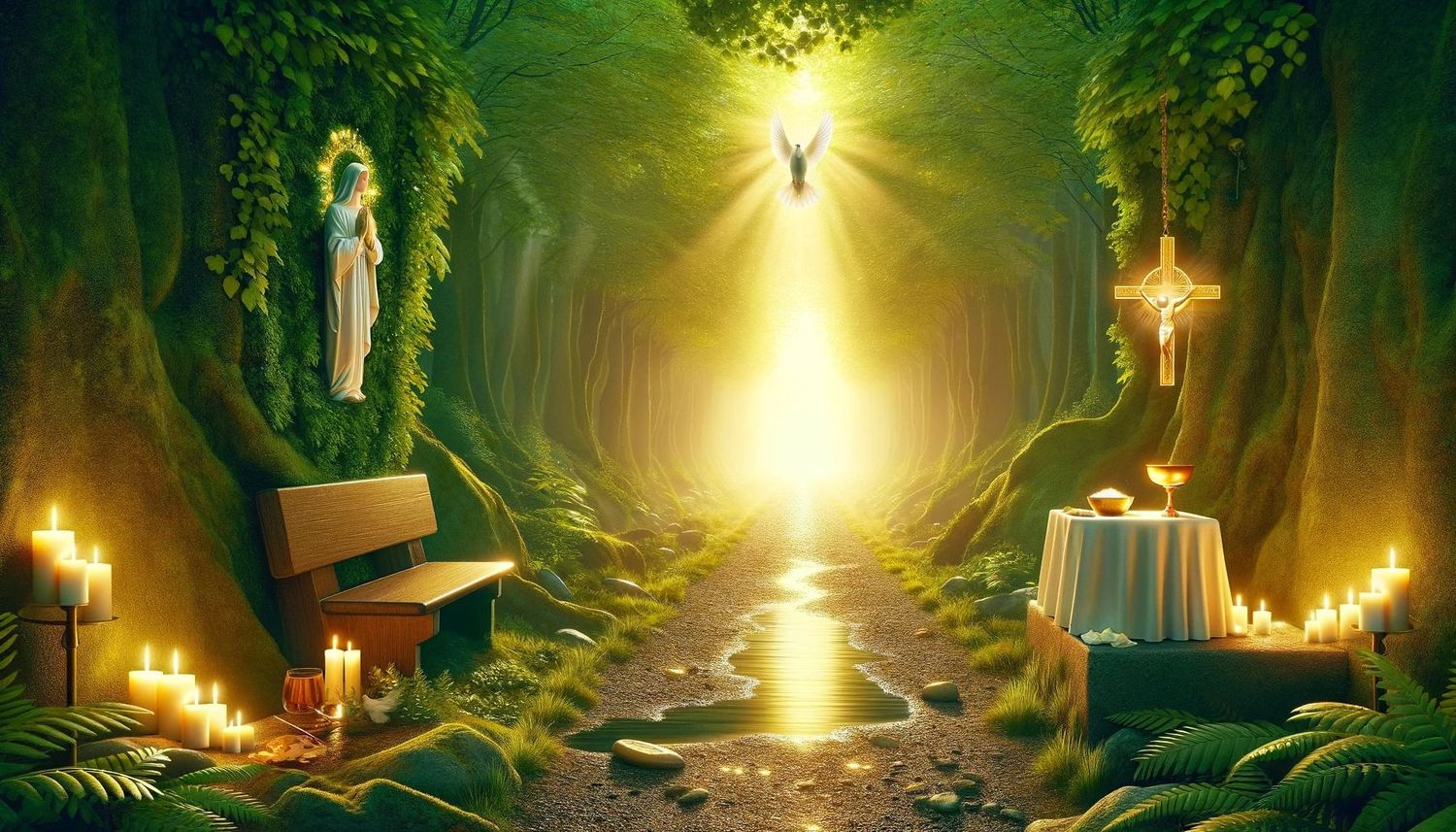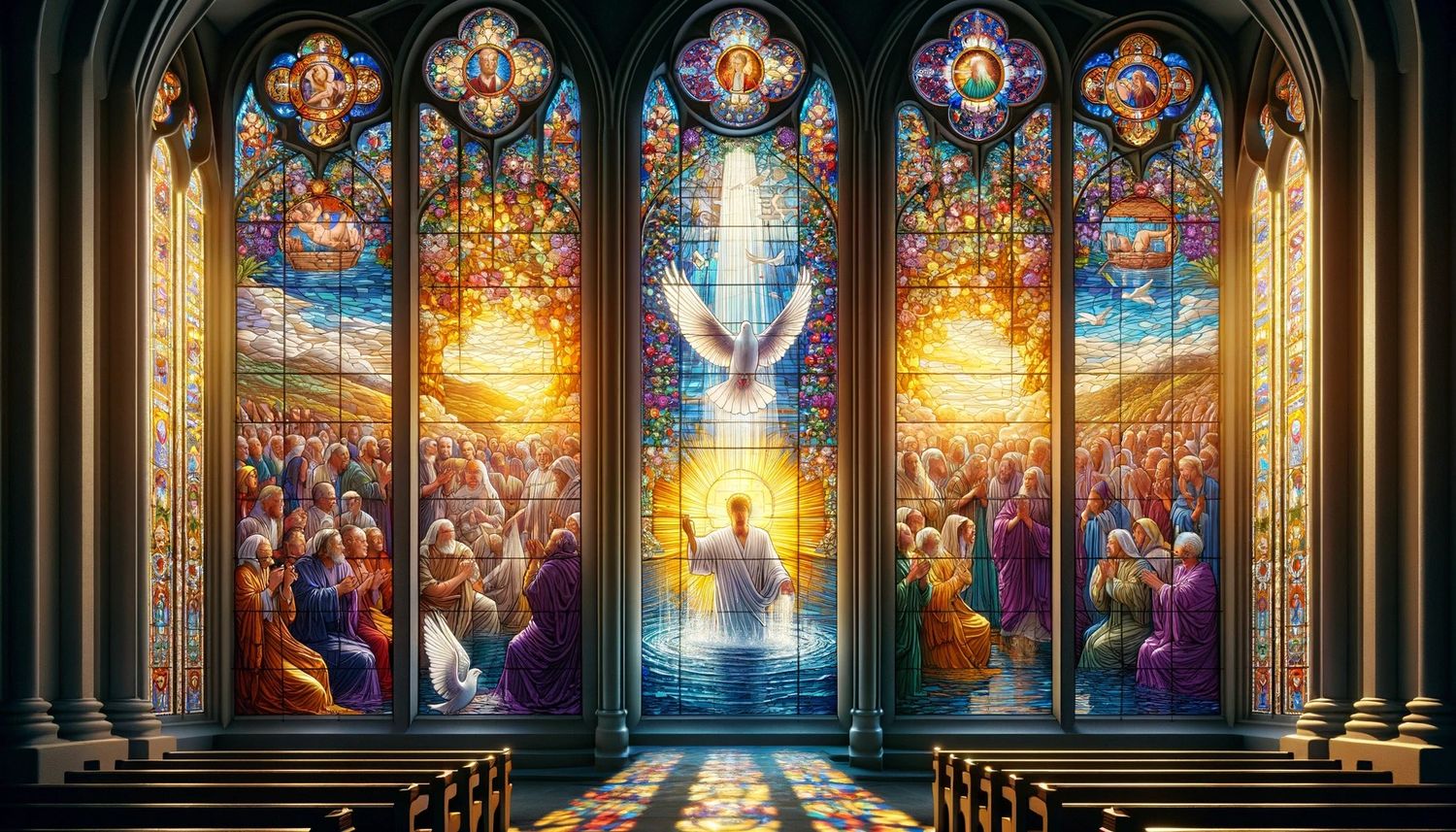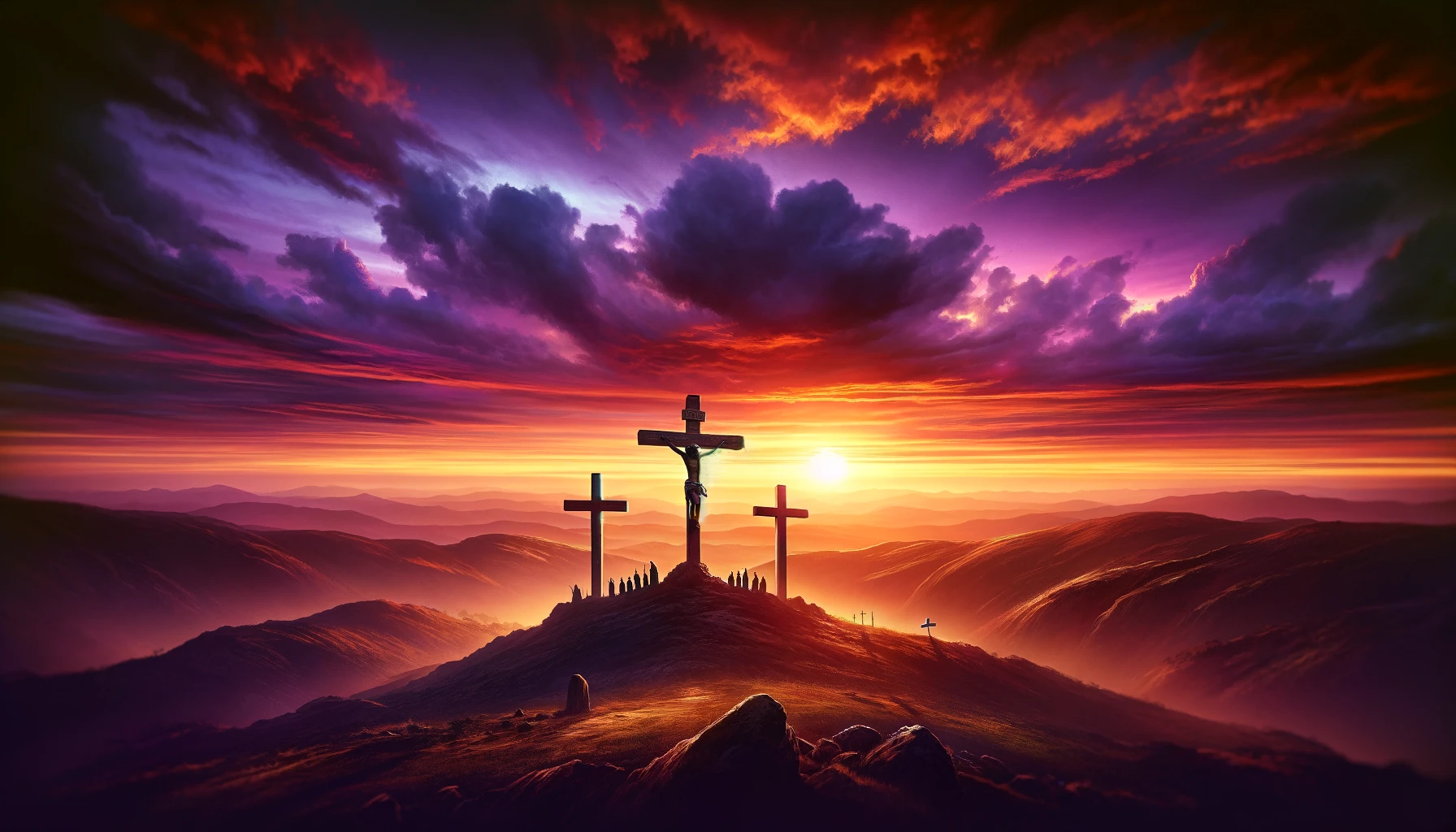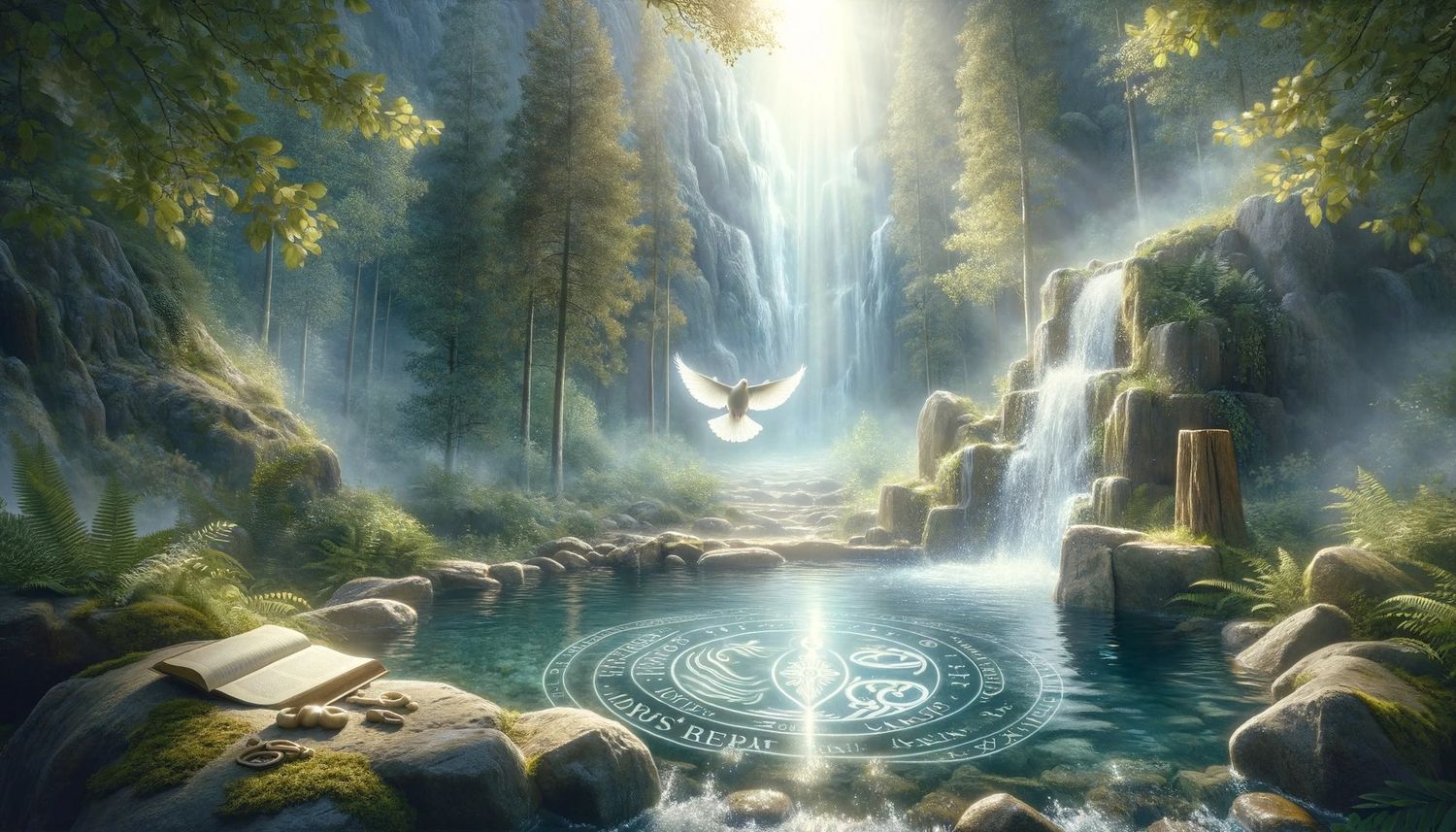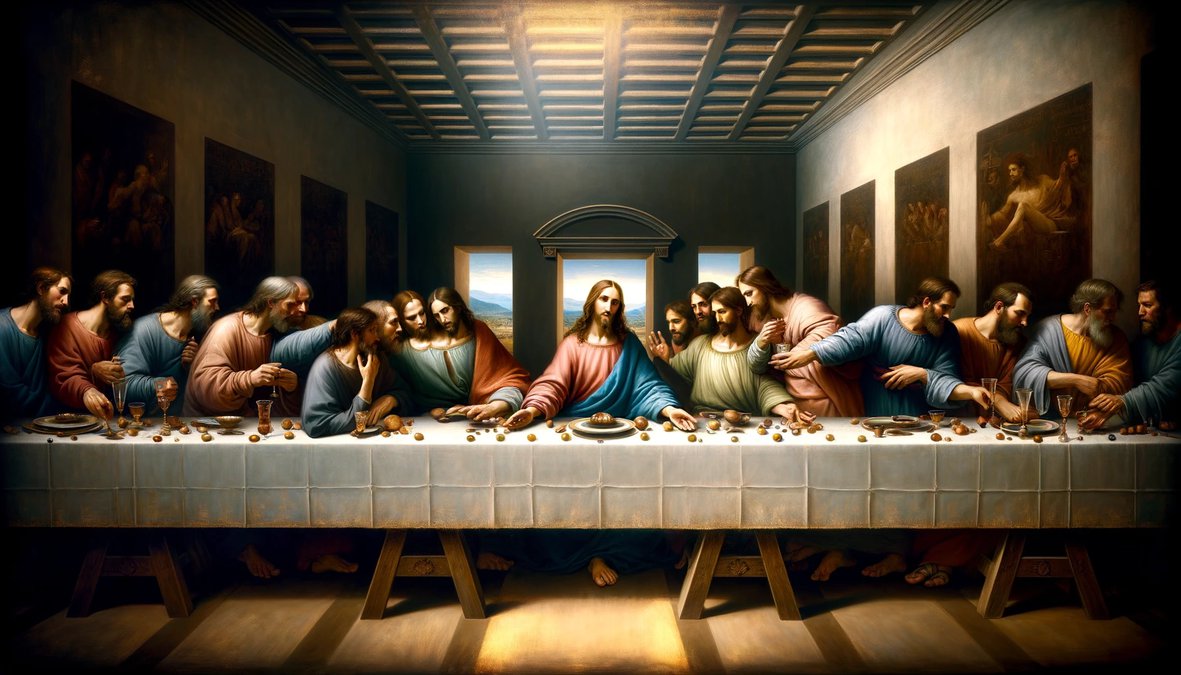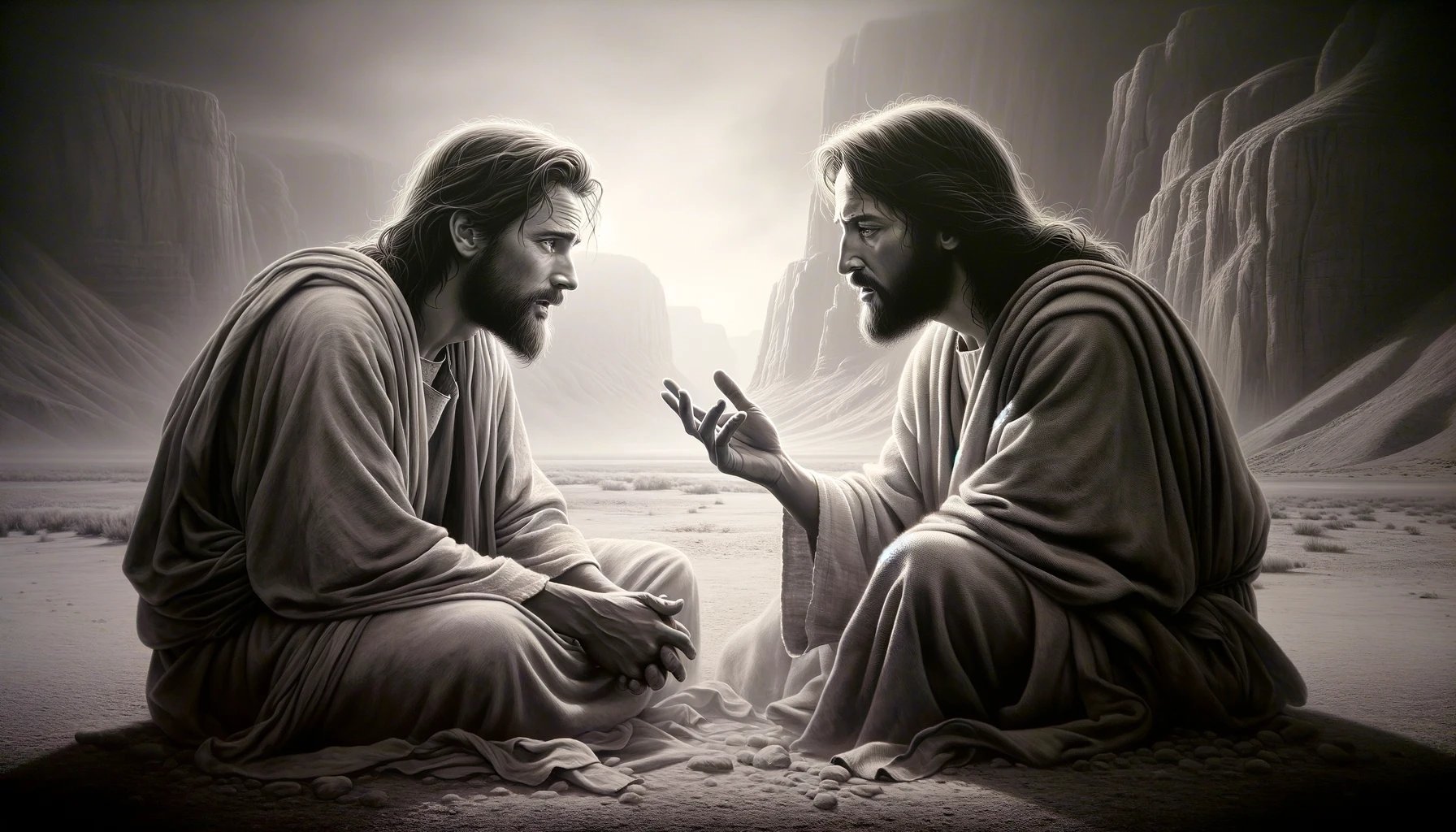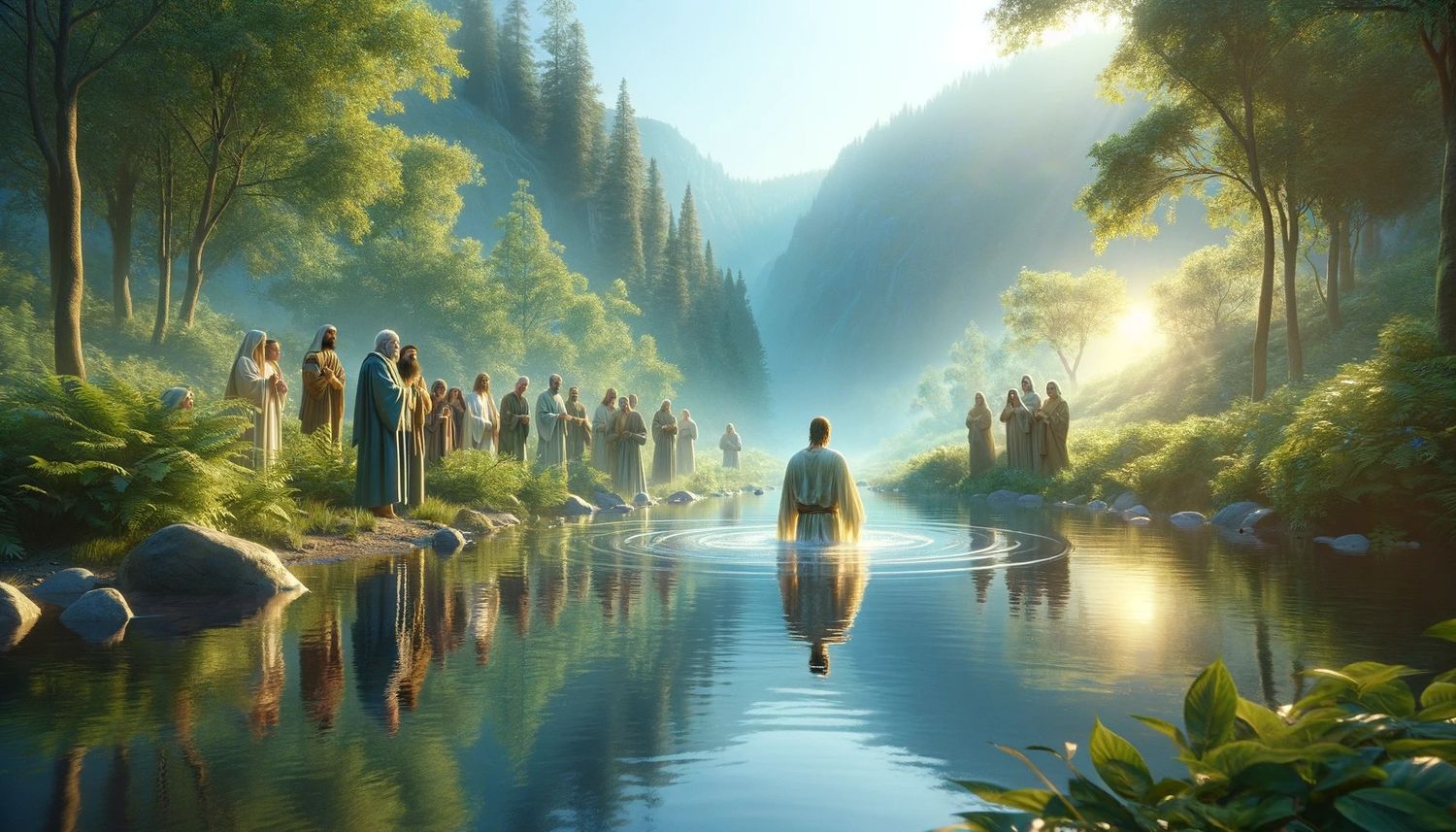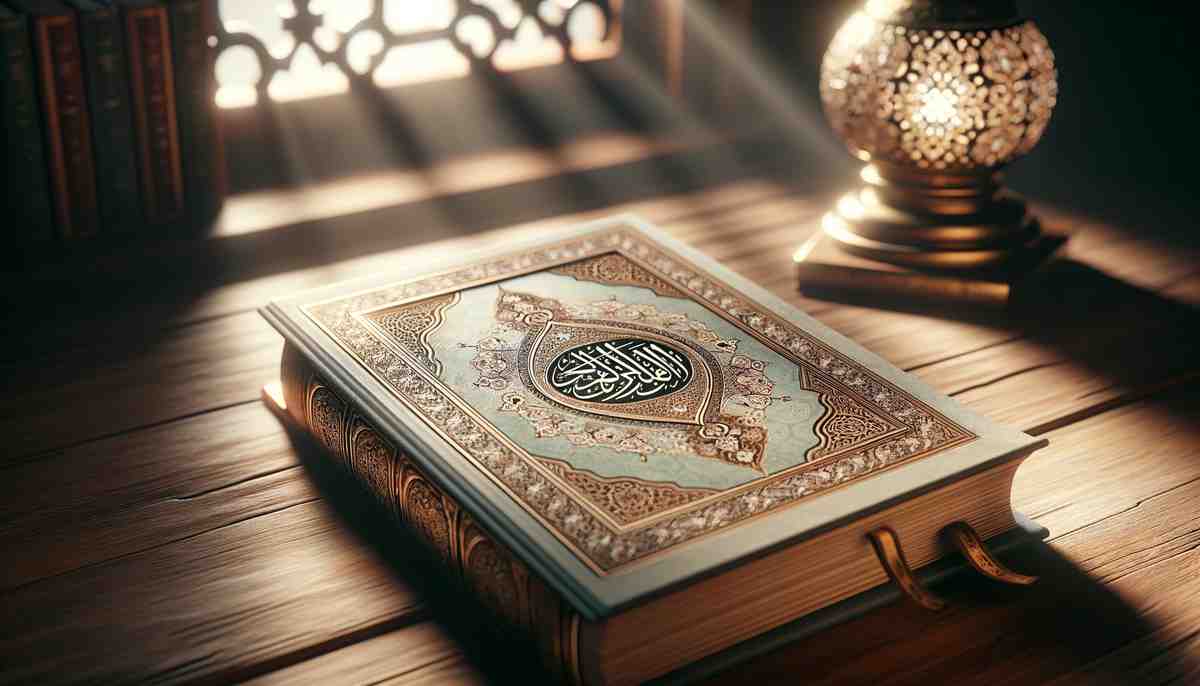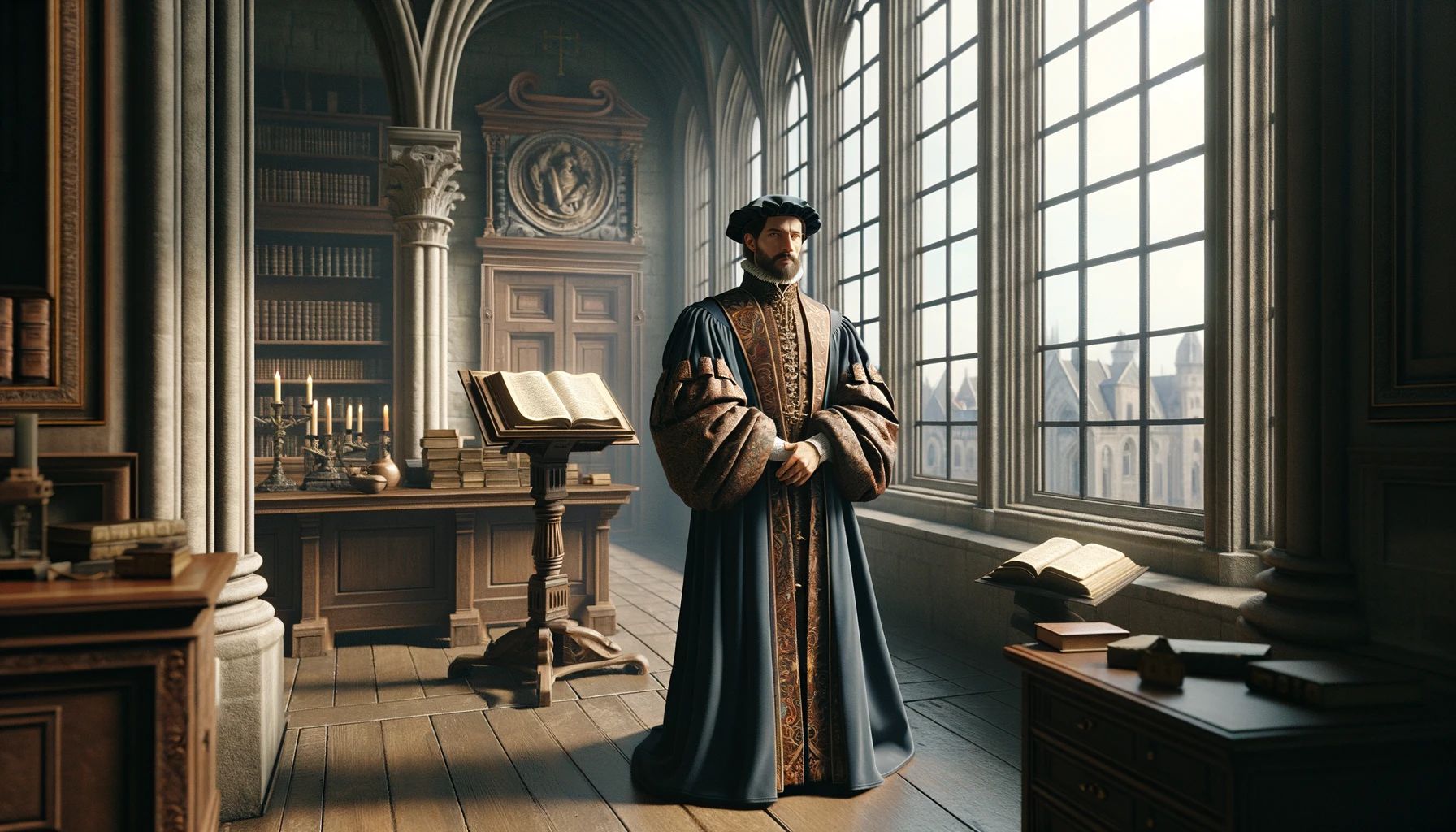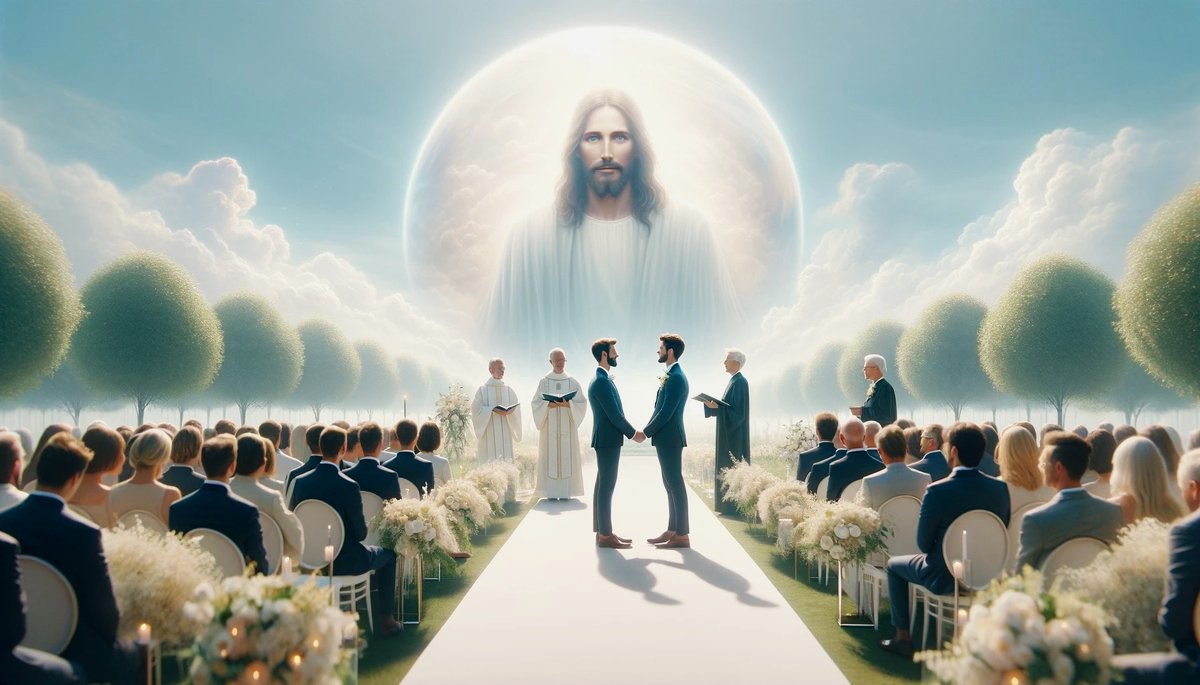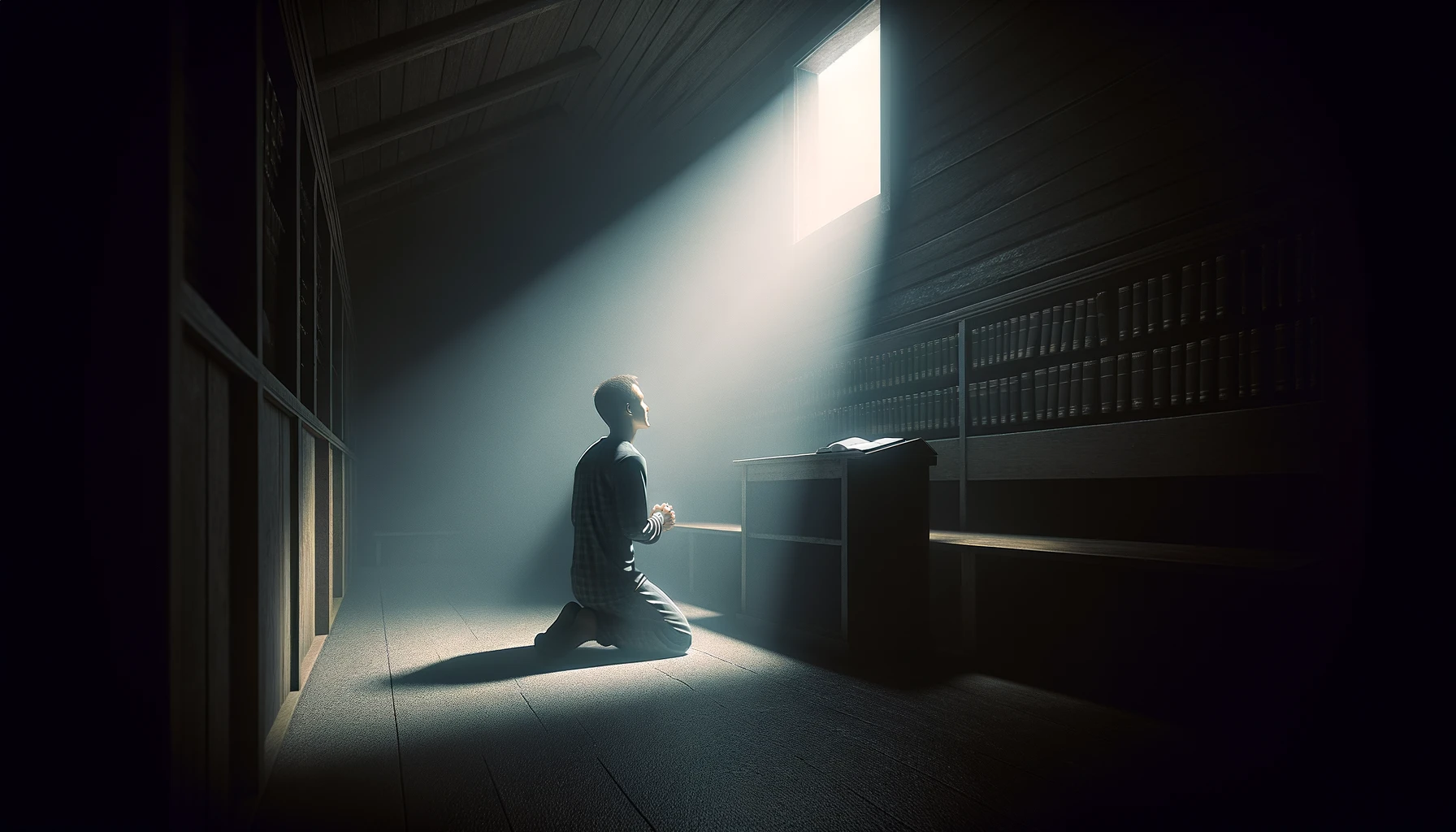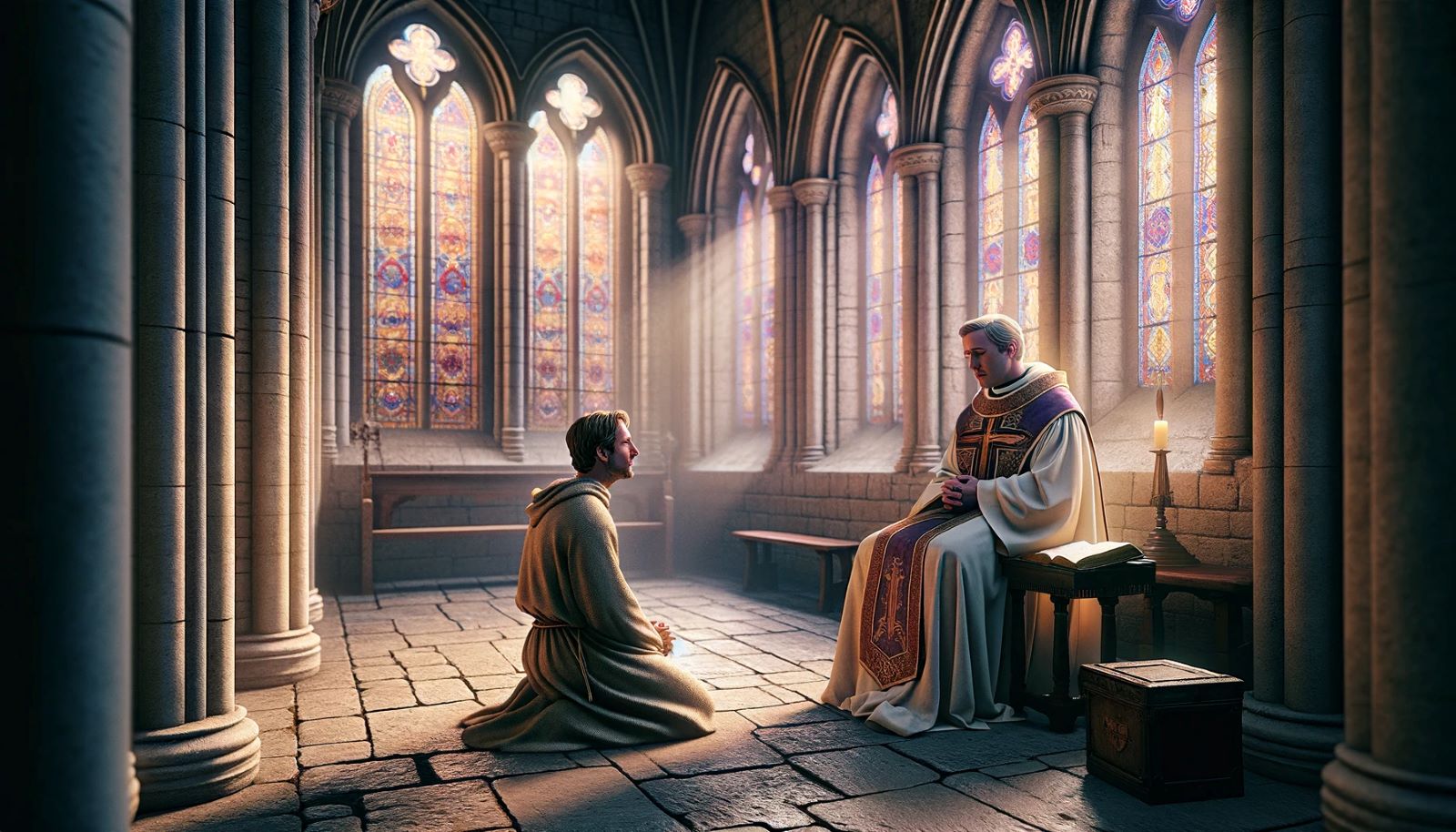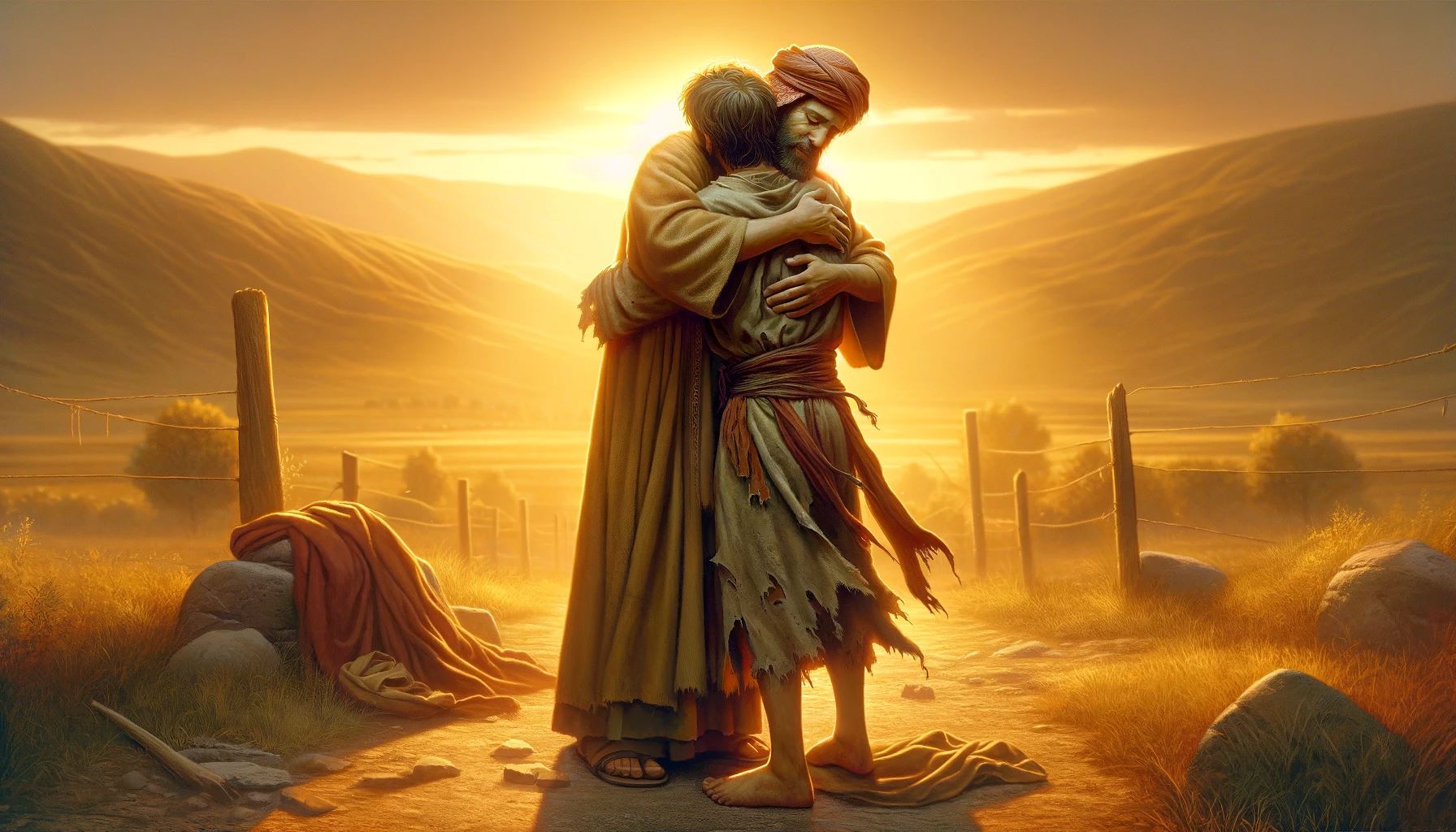Home>Theology and Spirituality>What Does Catholicism Say About Dinosaurs
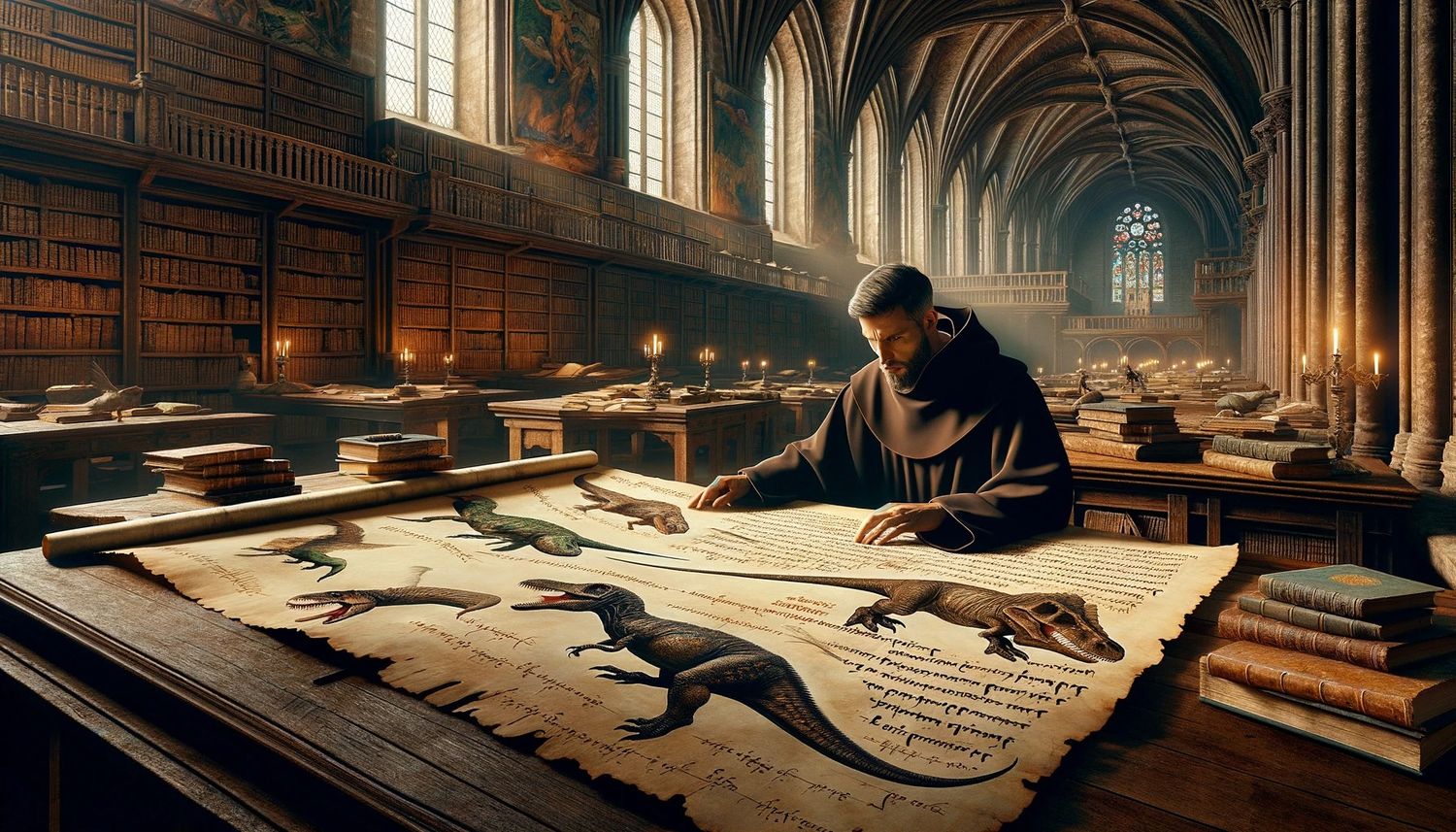

Theology and Spirituality
What Does Catholicism Say About Dinosaurs
Published: February 18, 2024
Peter Smith, Editorial Director at Christian.net, combines deep insights into faith, politics, and culture to lead content creation that resonates widely. Awarded for his contributions to religious discourse, he previously headed a major organization for religious communicators, enhancing dialogue on faith's societal impacts.
Explore the intersection of theology and spirituality with Catholicism's perspective on dinosaurs. Uncover the fascinating insights and beliefs within the faith.
(Many of the links in this article redirect to a specific reviewed product. Your purchase of these products through affiliate links helps to generate commission for Christian.net, at no extra cost. Learn more)
Table of Contents
Introduction
The intersection of theology and science has long been a subject of fascination and inquiry. In the realm of Catholicism, this intersection takes on a profound significance, as the faith seeks to reconcile its rich spiritual traditions with the discoveries and theories put forth by the scientific community. One particularly intriguing topic that arises from this intersection is the question of how Catholicism views the existence of dinosaurs.
Dinosaurs, with their colossal size and enigmatic extinction, have captured the imagination of people across the globe. They represent a fascinating chapter in the Earth's history, sparking curiosity and wonder about the ancient world. In the context of Catholicism, the existence of dinosaurs raises thought-provoking questions about the relationship between faith, scientific inquiry, and the interpretation of sacred texts.
As we delve into the Catholic perspective on dinosaurs, it's essential to approach this topic with an open mind and a willingness to explore the nuances of theological thought. By doing so, we can gain a deeper understanding of how Catholicism navigates the complexities of the natural world and the profound mysteries it holds. Let's embark on a journey to uncover the theological insights and perspectives that shed light on the intriguing question: What does Catholicism say about dinosaurs?
Read more: What Does The Bible Say About Catholicism
The Creation Story in Catholicism
The creation story in Catholicism is a foundational narrative that provides insight into the beliefs and perspectives of the faith regarding the origins of the universe and humanity. At the heart of this story is the Book of Genesis, which presents a poetic and profound account of God's creative work. According to Catholic teachings, the creation story serves as a testament to the divine wisdom and power that brought the world into existence.
In the Book of Genesis, the creation narrative unfolds over the course of six days, with each day representing a distinct stage of God's creative activity. On the first day, God brings forth light, separating it from the darkness. Subsequent days witness the formation of the sky, land, seas, and vegetation, followed by the creation of the sun, moon, and stars. The pinnacle of God's creative work culminates in the formation of living creatures, including animals, and ultimately, the crowning achievement: the creation of humanity in the image and likeness of God.
Central to the Catholic understanding of the creation story is the belief in God as the ultimate source of all existence. The narrative underscores the inherent goodness and purpose infused into the created world, reflecting the divine intention behind its formation. Furthermore, the creation story emphasizes humanity's unique role as stewards of God's creation, entrusted with the responsibility to care for and cultivate the Earth.
Within the context of the creation story, Catholicism emphasizes the harmony between faith and reason, recognizing the value of both spiritual insights and scientific exploration. While the narrative of creation in Genesis is revered as a sacred account, the Catholic tradition also acknowledges the importance of engaging with scientific discoveries and theories about the origins of the universe and life on Earth.
The creation story in Catholicism invites contemplation and reverence for the intricate beauty and order woven into the fabric of the natural world. It serves as a testament to the profound mystery of creation, inviting believers to marvel at the grandeur of God's handiwork while embracing the ongoing quest for understanding the complexities of the universe.
In the next section, we will explore the theological perspectives on dinosaurs within the framework of Catholic teachings, shedding light on how the faith navigates the intriguing intersection of ancient creatures and divine creation.
Theological Perspectives on Dinosaurs
The presence of dinosaurs in the Earth's ancient history raises thought-provoking questions within the context of Catholic theology. These magnificent creatures, with their colossal size and enigmatic extinction, invite contemplation about their place in the grand narrative of creation. From a theological standpoint, the existence of dinosaurs prompts a nuanced exploration of God's creative work and the intricate tapestry of life on Earth.
In Catholicism, the theological perspectives on dinosaurs are shaped by a profound reverence for the divine as the ultimate source of all existence. The faith acknowledges the awe-inspiring diversity of life forms that have inhabited the Earth throughout its long history, recognizing the inherent value and purpose woven into the fabric of creation. Within this framework, dinosaurs are viewed as part of the rich tapestry of God's creative expression, reflecting the boundless diversity and majesty of the natural world.
Moreover, the presence of dinosaurs invites contemplation about the mysteries of God's providential plan. Their ancient existence prompts reflection on the unfolding of God's creative purposes across vast stretches of time, inviting believers to marvel at the intricate interplay of life forms throughout the ages. This perspective underscores the profound sense of wonder and humility that arises from contemplating the enduring legacy of ancient creatures and their place in the unfolding drama of creation.
From a theological vantage point, the existence of dinosaurs also underscores the dynamic nature of God's ongoing creative activity. The Catholic tradition embraces the concept of God as the sustainer of all life, guiding the evolutionary processes that have shaped the development of species over millennia. This perspective invites believers to appreciate the ongoing unfolding of God's creative purposes, recognizing the profound continuity and interconnectedness that spans the entirety of Earth's history.
In light of these theological perspectives, the existence of dinosaurs serves as a testament to the enduring mysteries of God's creative work and the profound depths of the natural world. Their presence invites believers to contemplate the intricate beauty and diversity of life, fostering a sense of reverence for the ancient chapters of Earth's history. Ultimately, the theological perspectives on dinosaurs within Catholicism inspire a profound appreciation for the ongoing revelation of God's creative wisdom, inviting believers to marvel at the enduring legacy of ancient creatures and the boundless wonders of the natural world.
The Role of Science in Catholicism
The Catholic Church has long recognized the value of scientific inquiry as a means of exploring the natural world and understanding the complexities of creation. Within the framework of Catholicism, the role of science is viewed as a complementary and enriching pursuit that contributes to a deeper appreciation of God's handiwork in the universe. The Church acknowledges the importance of engaging with scientific discoveries and theories, recognizing that the pursuit of knowledge through empirical observation and rigorous investigation can illuminate the wonders of creation.
At the heart of the Catholic perspective on the role of science lies a profound respect for the harmony between faith and reason. The Church upholds the belief that faith and scientific inquiry are not mutually exclusive, but rather can coexist in a mutually enriching relationship. This perspective is rooted in the understanding that the natural world, as a product of God's creative wisdom, is a subject of profound study and exploration. Through scientific endeavors, humanity can gain deeper insights into the intricate mechanisms and processes that govern the cosmos, fostering a sense of wonder and awe at the grandeur of God's design.
Catholicism encourages believers to embrace scientific knowledge as a means of deepening their understanding of the natural world. The Church recognizes the valuable contributions of scientists in unraveling the mysteries of the universe, from the cosmic expanse to the intricate workings of living organisms. By engaging with scientific discoveries, Catholics are invited to marvel at the intricate beauty and order inherent in the natural world, recognizing it as a reflection of God's boundless creativity and wisdom.
Moreover, the Catholic tradition emphasizes the ethical dimensions of scientific inquiry, calling for responsible stewardship of knowledge and technology. The Church advocates for the ethical application of scientific advancements, promoting the use of scientific knowledge for the betterment of humanity and the preservation of the environment. This ethical framework underscores the Church's commitment to upholding the dignity of all creation and promoting the common good through the responsible use of scientific knowledge.
In essence, the role of science in Catholicism is characterized by a deep appreciation for the pursuit of knowledge, the harmony between faith and reason, and the ethical responsibility that accompanies scientific discovery. By embracing scientific inquiry as a means of exploring the wonders of creation, Catholics are invited to cultivate a profound reverence for the natural world and the enduring mysteries that continue to unfold through the lens of scientific exploration.
Catholic Views on Evolution
Catholic views on evolution encompass a rich tapestry of theological insights and perspectives that reflect the faith's engagement with scientific discoveries and the complexities of the natural world. At the heart of Catholic teachings lies a profound recognition of the harmony between faith and reason, inviting believers to explore the intricate interplay of divine revelation and scientific inquiry.
Within the framework of Catholicism, the concept of evolution is not viewed as inherently incompatible with the faith's understanding of creation. The Church acknowledges the scientific evidence supporting the theory of evolution, recognizing it as a valuable framework for understanding the development of life forms over vast stretches of time. This perspective underscores the Catholic tradition's openness to engaging with scientific knowledge, embracing the insights gleaned from evolutionary theory as a means of deepening the understanding of God's creative work.
Moreover, Catholic views on evolution emphasize the compatibility of evolutionary processes with the belief in God as the ultimate source of all existence. The faith upholds the understanding that God's creative wisdom is manifested through the dynamic unfolding of life forms, guiding the evolutionary processes that have shaped the development of species. This theological perspective invites believers to contemplate the profound continuity and interconnectedness woven into the fabric of creation, recognizing the enduring presence of God's providential care throughout the evolutionary journey of life on Earth.
Furthermore, the Catholic tradition underscores the ethical dimensions of engaging with evolutionary theory, calling for a responsible and nuanced approach to its interpretation. The Church advocates for a holistic understanding of the human person, recognizing the dignity and spiritual nature inherent in each individual. Within this framework, Catholic views on evolution emphasize the importance of upholding the dignity of the human person while acknowledging the divine imprint woven into the tapestry of creation.
In essence, Catholic views on evolution reflect a profound engagement with the complexities of the natural world, inviting believers to embrace the insights of scientific inquiry while upholding the enduring truths of faith. The faith's openness to evolutionary theory underscores its commitment to fostering a harmonious dialogue between faith and reason, enriching the understanding of God's creative work and the intricate beauty of the natural world.
Read more: What Does Romans Say About Baptism
Conclusion
In conclusion, the Catholic perspective on dinosaurs offers a profound exploration of the intersection between faith, scientific inquiry, and the enduring mysteries of creation. The theological insights and perspectives within Catholicism invite believers to contemplate the ancient legacy of dinosaurs as part of the rich tapestry of God's creative work. The creation story in Catholicism, rooted in the poetic narrative of Genesis, underscores the inherent goodness and purpose woven into the natural world, inviting reverence for the intricate beauty and order of creation.
The theological perspectives on dinosaurs within Catholicism reflect a deep reverence for the enduring mysteries of God's creative wisdom, inviting believers to marvel at the boundless diversity and majesty of the natural world. The presence of dinosaurs prompts contemplation about the unfolding of God's providential plan across vast stretches of time, fostering a sense of wonder and humility at the enduring legacy of ancient creatures.
Furthermore, the role of science in Catholicism enriches the exploration of dinosaurs, emphasizing the harmony between faith and reason. The Church's recognition of the value of scientific inquiry invites believers to engage with the wonders of creation, fostering a profound appreciation for the natural world and the ongoing revelations of scientific exploration.
Catholic views on evolution further illuminate the faith's openness to engaging with scientific knowledge, recognizing the compatibility of evolutionary processes with the enduring truths of faith. The Church's commitment to upholding the dignity of the human person within the framework of evolutionary theory underscores its ethical engagement with the complexities of the natural world.
In essence, the Catholic perspective on dinosaurs encapsulates a profound reverence for the enduring mysteries of creation, inviting believers to embrace the insights of scientific inquiry while upholding the enduring truths of faith. The theological perspectives within Catholicism inspire a deep appreciation for the intricate beauty and diversity of life, fostering a sense of wonder and reverence for the ancient chapters of Earth's history. Ultimately, the Catholic perspective on dinosaurs invites believers to marvel at the enduring legacy of ancient creatures and the boundless wonders of the natural world, embracing the harmonious dialogue between faith, reason, and the enduring mysteries of creation.
